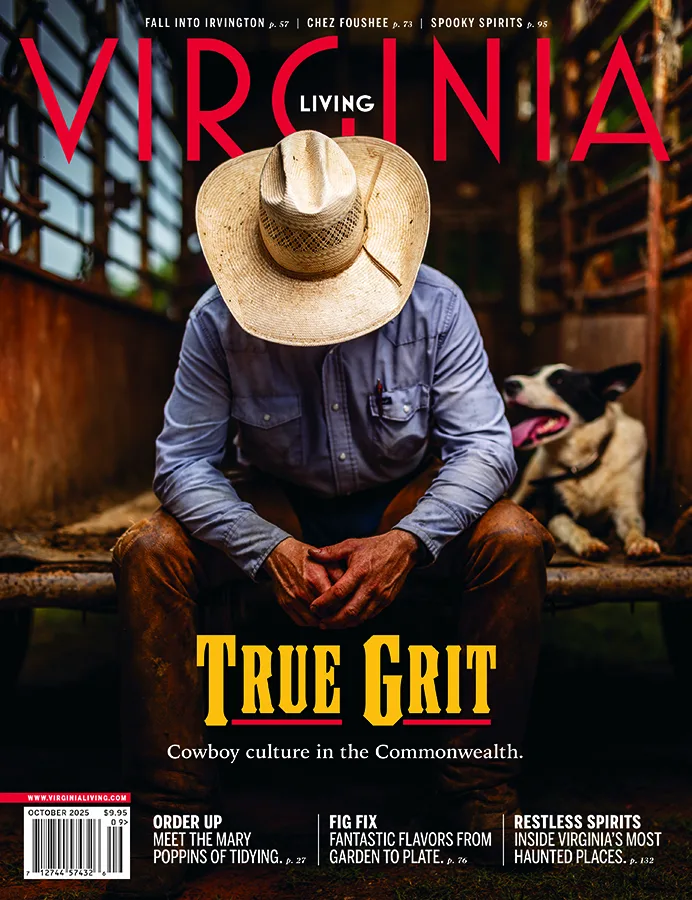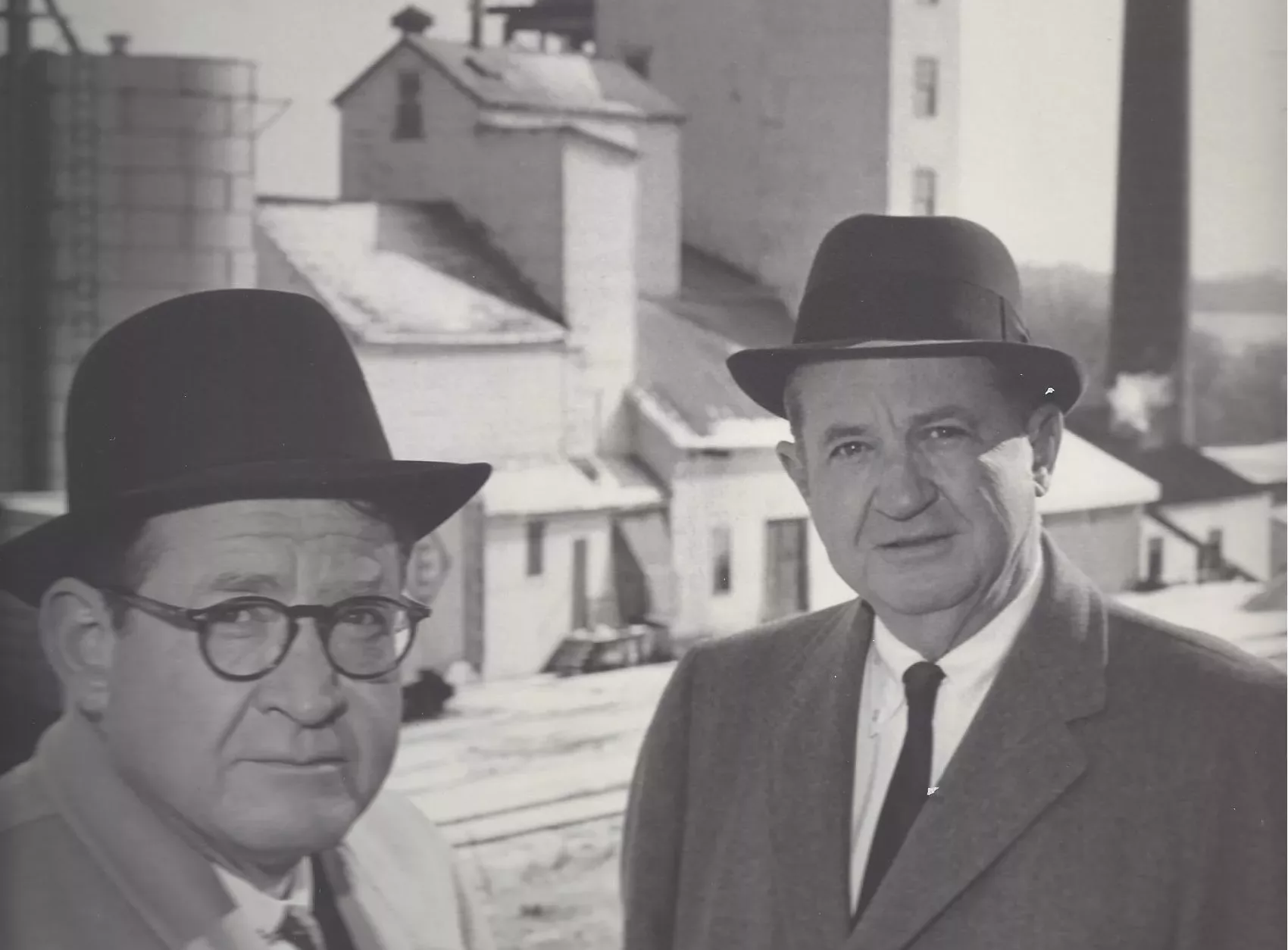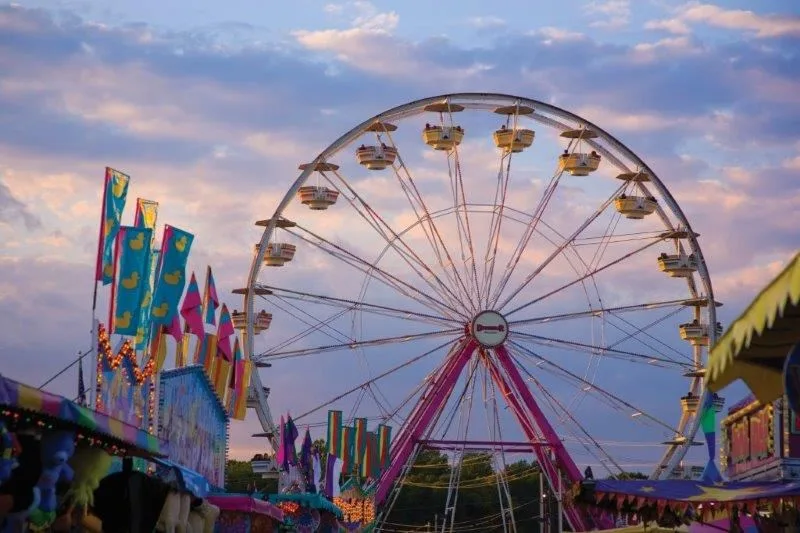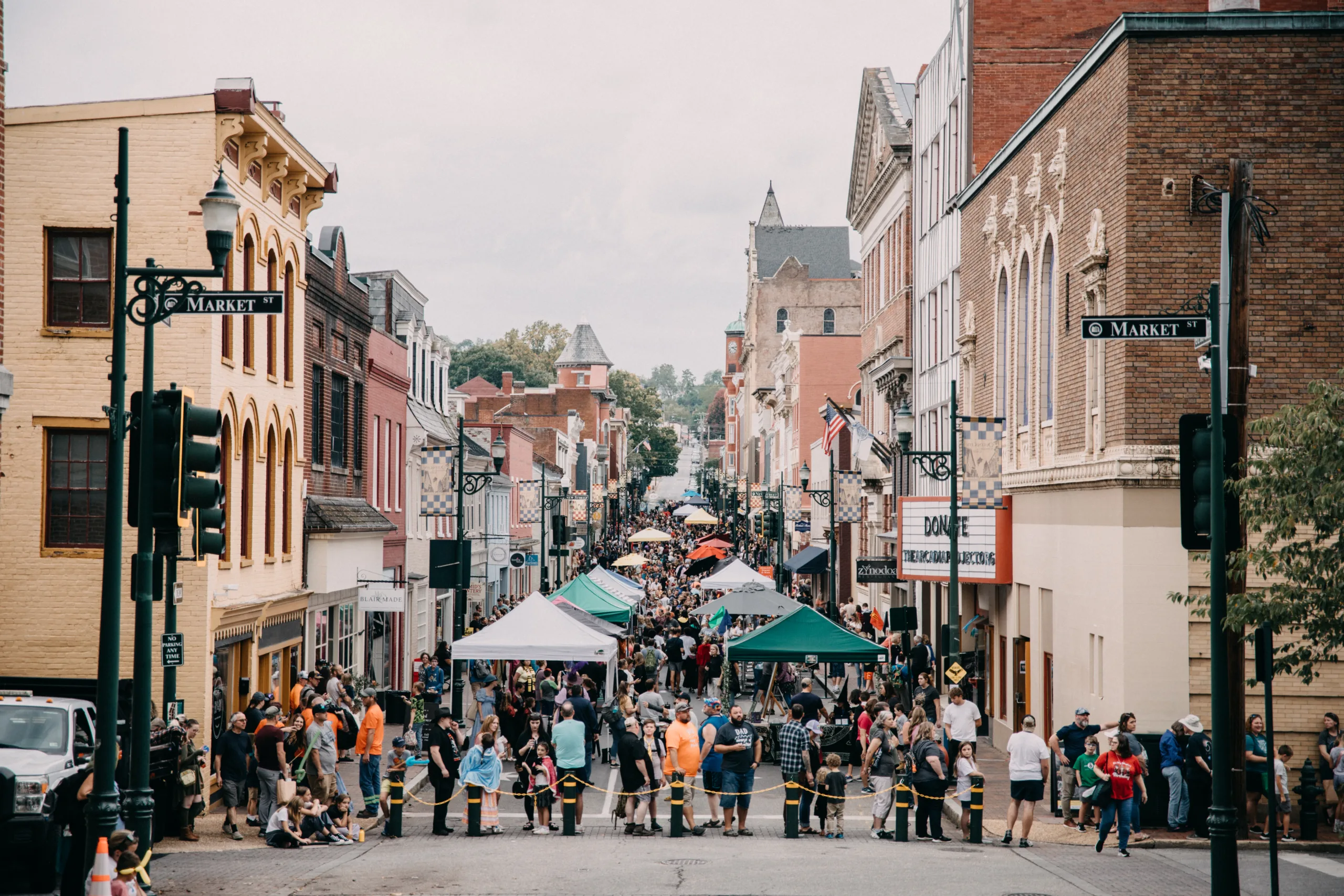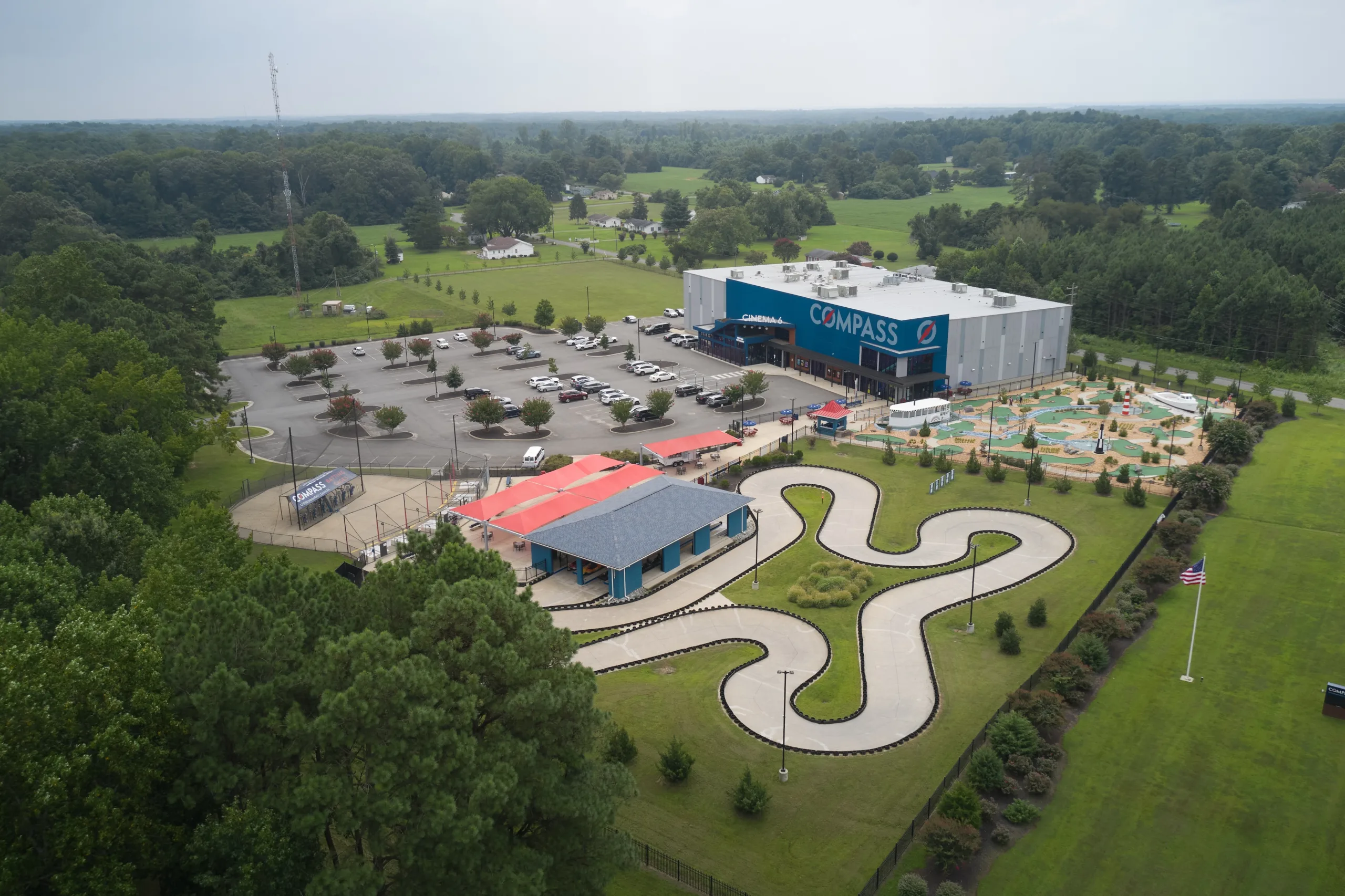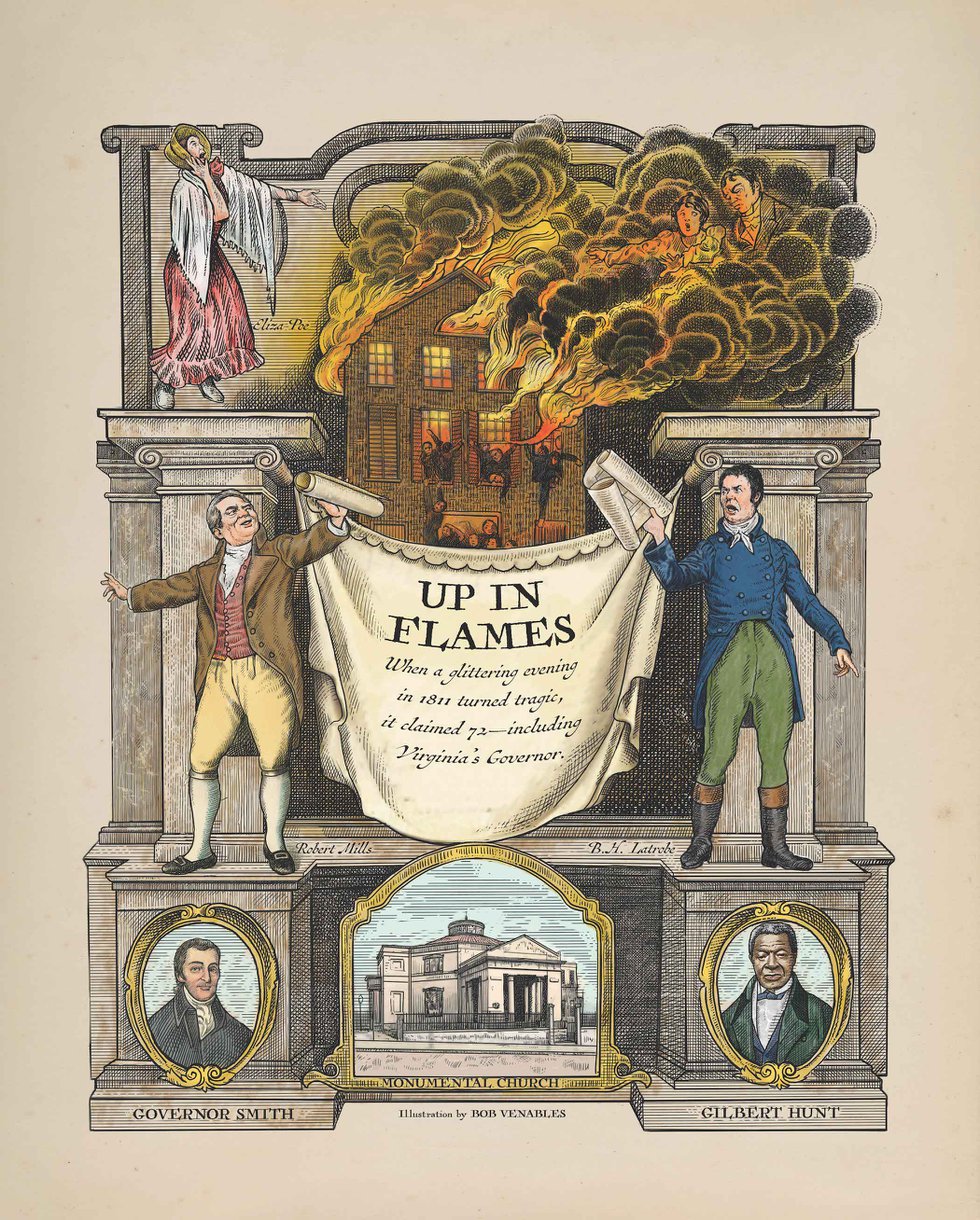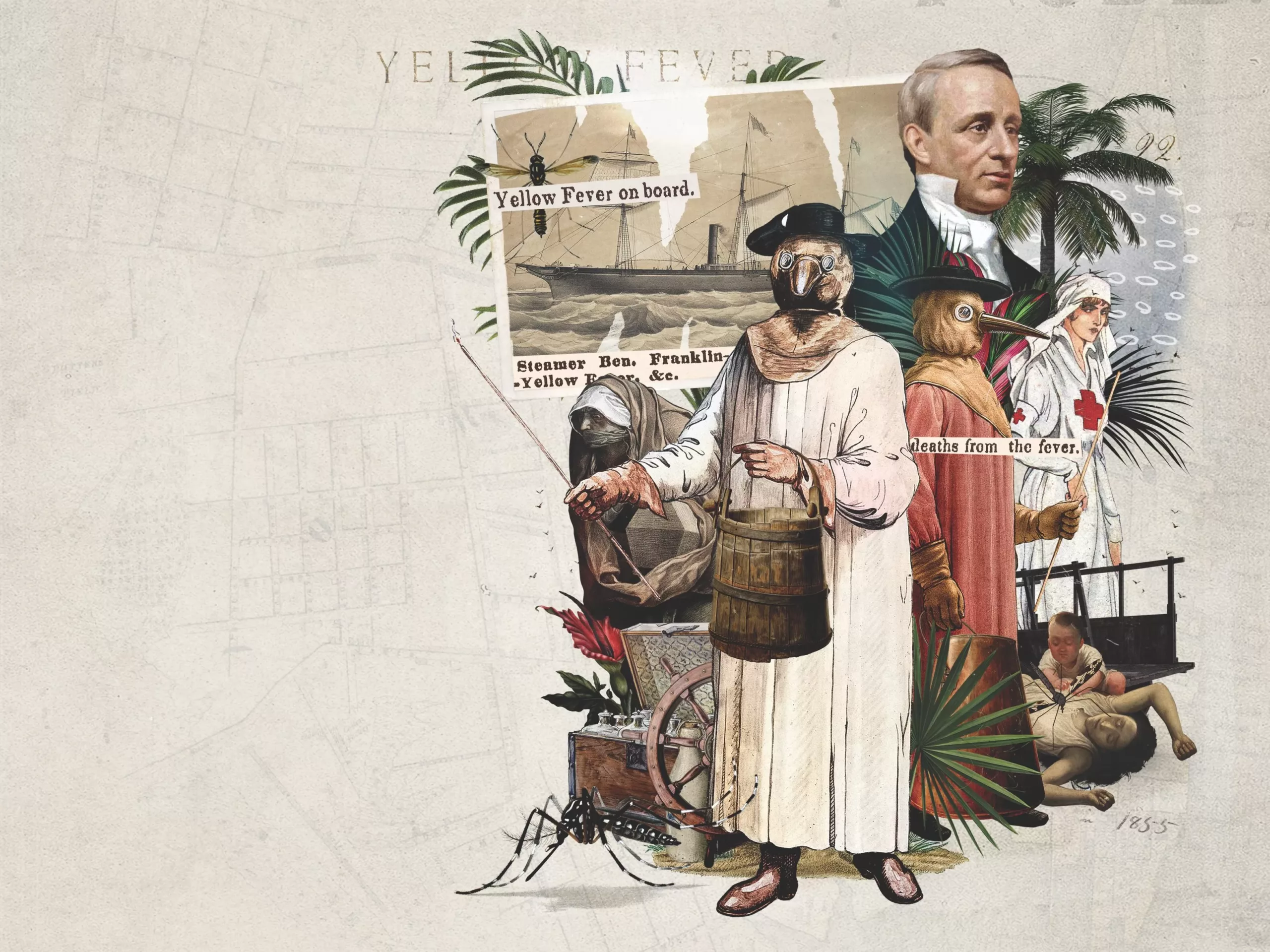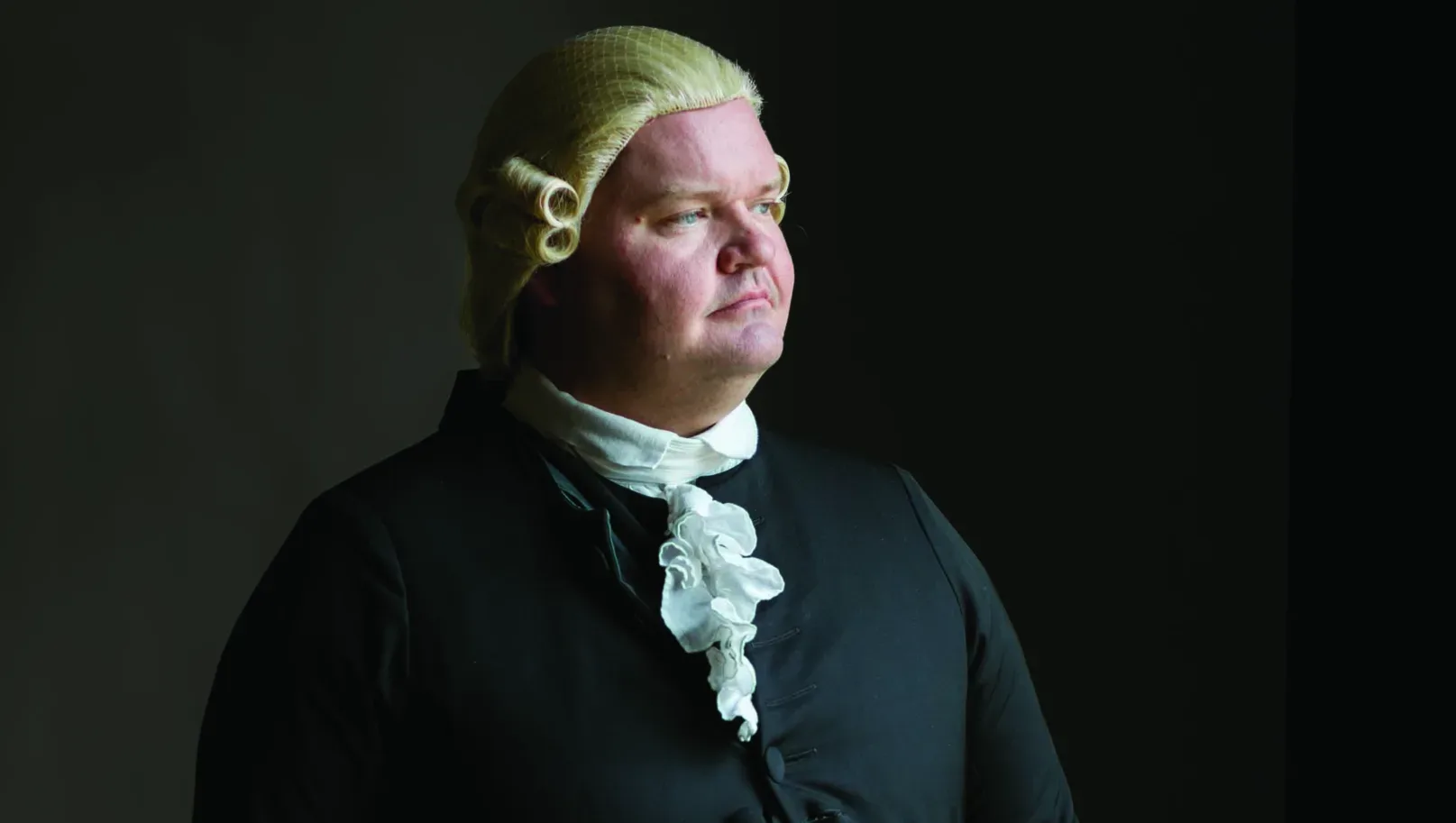Ambrosial, musky, and sweet fragrances of alcohol waft through: The A. Smith Bowman Distillery barrel warehouse welcomes with a distinct aroma. The wood varies from Hungarian to Austrian, American, Brazilian, and more—all destined for Bowman products. But the story behind the Bowman name goes deeper than whiskey.
The company’s stills, George and Mary, aren’t named for our first president and his mother—the Mother of America spent time at nearby Kenmore, her daughter’s home—but rather George and Mary Bowman. In the 1730s, George and Mary moved to the Shenandoah Valley as German immigrants. In 1868, 150 years later, Abram Smith Bowman was born, whose ancestors included Revolutionary War heroes and a shorthorn cattle importer. Yes, that
A. Smith Bowman.
After trying his hand as a cattle rancher in Canada and successful business ventures in Louisiana and Indiana, Bowman and his family headed east to his ancestors’ home state, moving to Fairfax County in the 1920s. He brought along a tidy fortune—equivalent to millions in today’s money—amassed from a transportation business he’d established in Indianapolis. All that money enabled him to purchase the 4,000-acre Sunset Hills Farm with an objective to open a dairy and granary.
Before Bowman, the area was originally destined to be the town of Wiehle (pronounced wēl). The now-forgotten hamlet included three main buildings, but it didn’t catch on enough for people to put down roots. It became a ghost town after its founder and mayor, Dr. Carl A. Max Wiehle, died in 1901.
Sunset Hills became a self-sufficient community, with Bowman buying up more land and spearheading a major grain production operation. Wondering what in the world he would do with all the excess grain his land was producing, the shrewd businessman landed on a solution. Biding his time, he eagerly anticipated the day Prohibition ended to officially enter the alcohol business. He made sure to be in the courthouse exactly one day after the 21st Amendment was repealed, becoming the first and only legal distillery in Virginia since Prohibition began in Virginia in 1916.
A commotion ensued when the distillery began production in an old church building—the steeple had to be taken down. Still, the business continued to expand, especially when its signature product went the early 20th-century equivalent of viral: Virginia Gentleman whiskey.
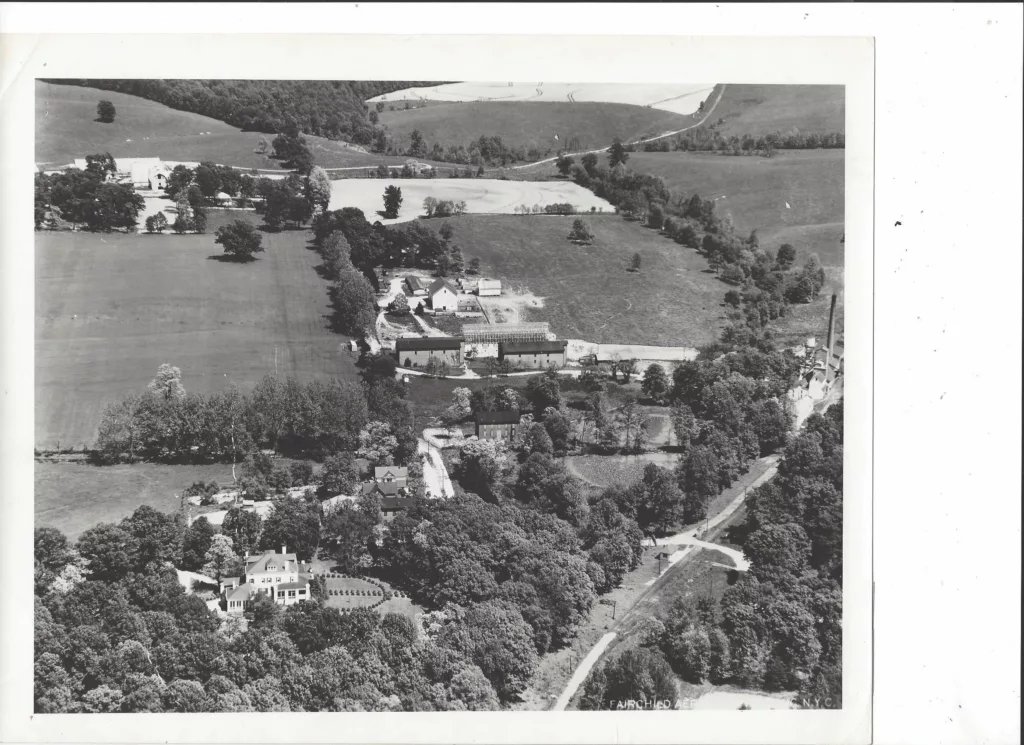
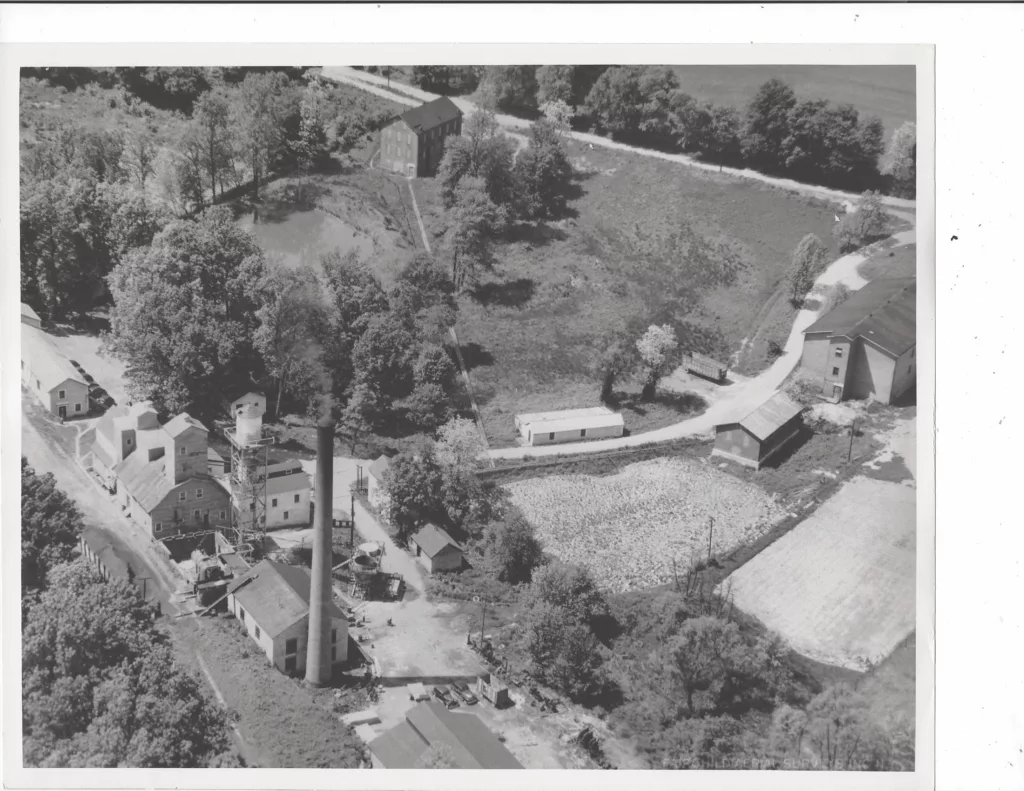
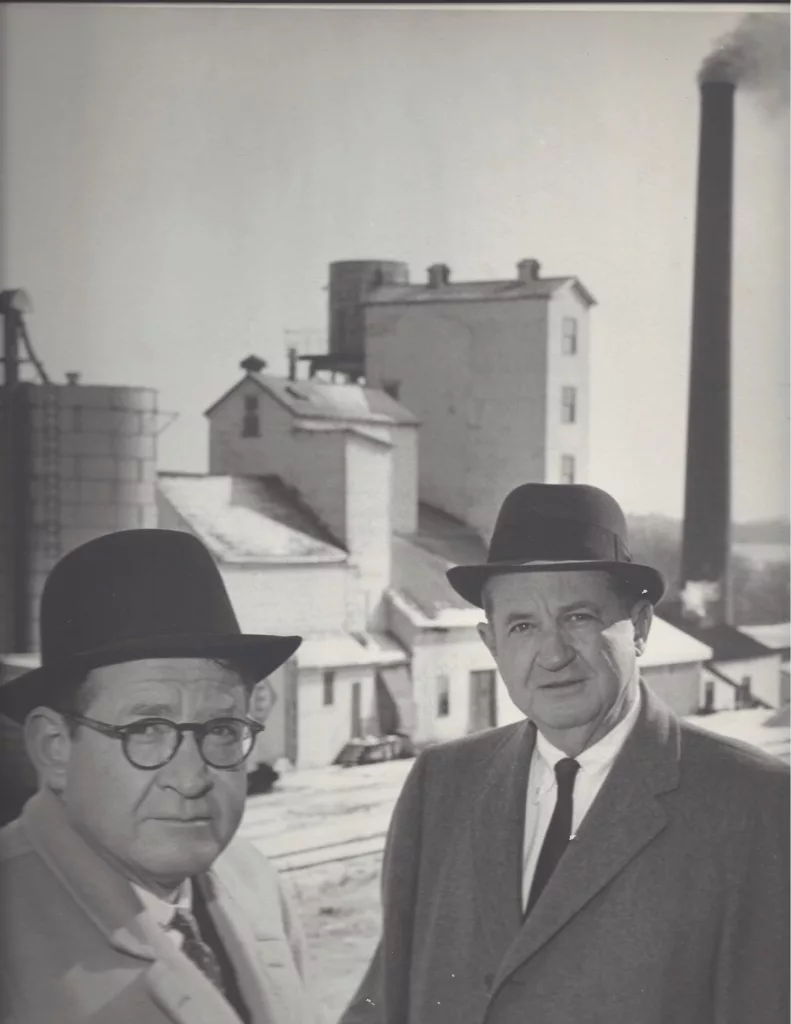
When A. Smith Bowman died in 1952, his sons, A. Smith Bowman Jr. and DeLong Bowman, took over the business. A decade later, the Bowman brothers sold the property in 1961, which had evolved to 7,000 acres by then, to real estate mogul Robert E. Simon, who bought it with the proceeds from the sale of Carnegie Hall, the famous concert venue in New York. With Simon’s leadership and revolutionary plans for development, Sunset Hills Farm became the town of Reston.
Meanwhile, the brand behind Virginia Gentleman began considering a move. Sixty miles south lay Fredericksburg’s Sylvania Plant, the largest cellophane factory in the world. Established to meet the demand for wrapped packaging—the South’s tobacco industry included—the plant was at one time producing 100 million tons of cellophane a year and employed thousands. Eventually petroleum-based plastic wrap, which was cheaper and not quite as smelly to produce, replaced wood pulp–based cellophane, and the Sylvania plant closed in the 1970s. Bowman Co. saw an opportunity and relocated there in 1988. Business boomed: in its heyday, the company even sold vodka to Russia.
Now owned by Sazerac Co., the distillery still continues to embrace its history, taking pride in its Bowman roots—right along with several employees who have worked there since the ’80s, from sweeping the floors and unloading trains to office administration and production operation.
Head distiller David Bock says it’s all a generational game. “It’s a blend of science and art,” he says. Bock keeps a rack of whiskey experiments, some ongoing, some failed. Like hot sauce whiskey, from the time they filled a barrel with hot sauce, emptied it, and then filled it with whiskey. Bock jokes that it was “pretty disgusting,” but he keeps the barrel as a reminder: “It’s OK as long as you keep trying to make the best whiskey.”
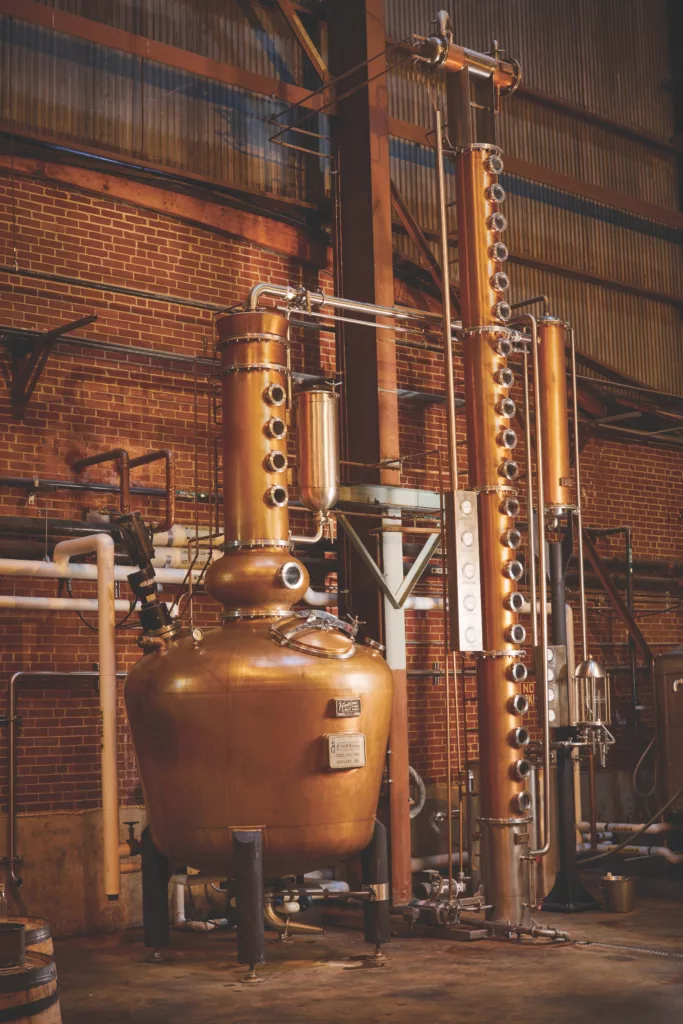
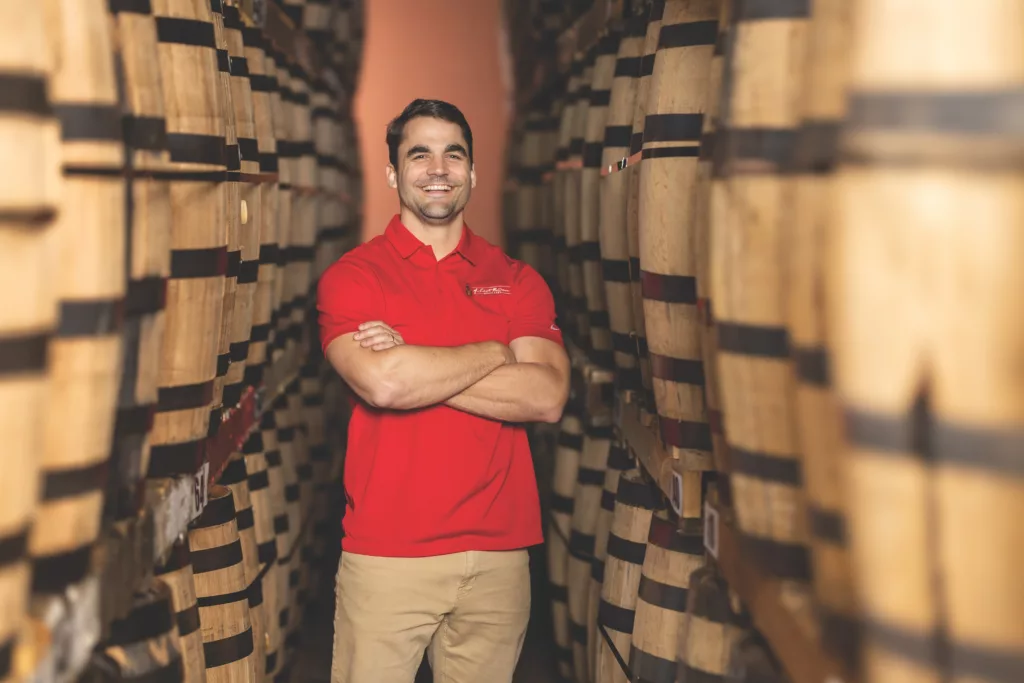
Virginia Gentleman is A. Smith Bowman’s signature spirit, but take a look at options that offer a nod to the past:
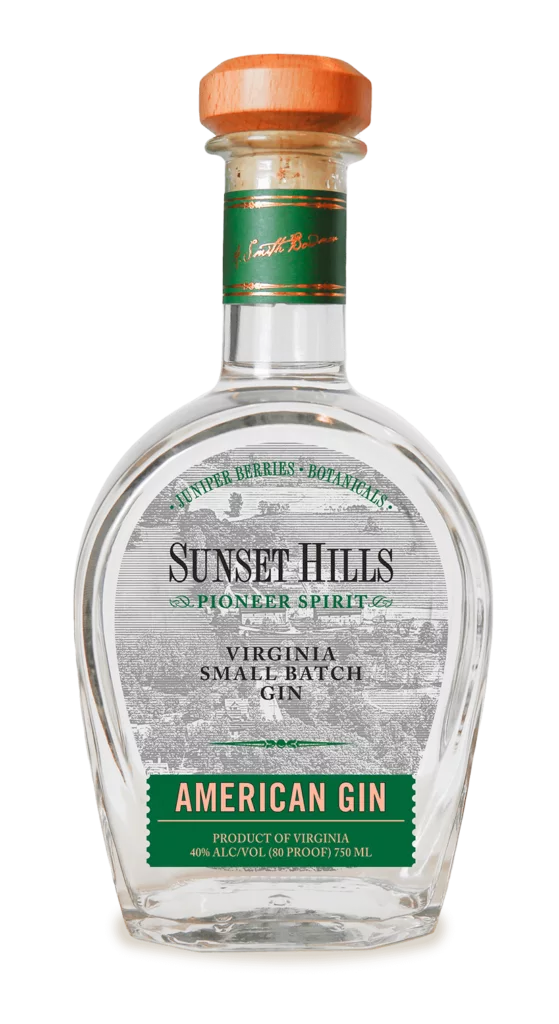
Sunset Hills Gin
Named as a tribute to the Bowmans’ original home and farm, this gin is distilled with fresh botanicals, juniper, and angelica.
Mary Hite Bowman
This tantalizing caramel bourbon cream liqueur is the perfect addition to ice cream and after-dinner indulgences. Named after the matriarch of the Bowman family, the liqueur is award-winning.
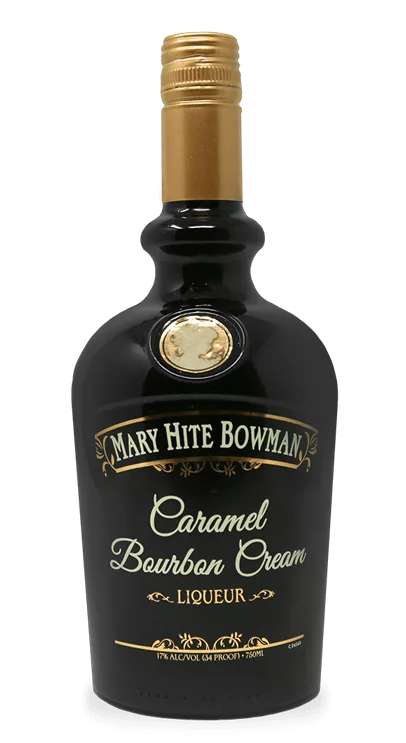
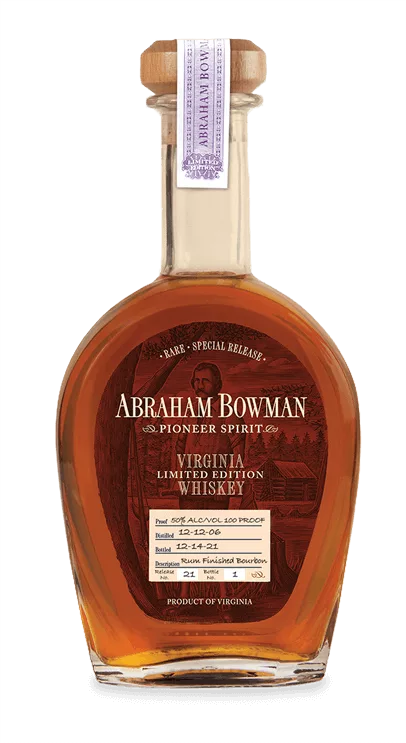
Abraham Bowman Limited Edition Whiskey Release No. 21 | Rum Finished Bourbon
This rum-finished bourbon is named after the commander of the 8th Virginia Regiment in the American Revolutionary War. Part of the Abraham Bowman experimental series, it has limited amounts and is only available in person.
Bowman Brothers Virginia Straight Bourbon Whiskey | Small Batch
This Virginia straight bourbon whiskey honors John J., Abraham, Joseph, and Isaac Bowman who were Virginia militia officers in the American Revolutionary War. It’s distilled three times using the finest corn, rye, and malted barley, producing distinct hints of vanilla, spice, and oak. ASmithBowman.com
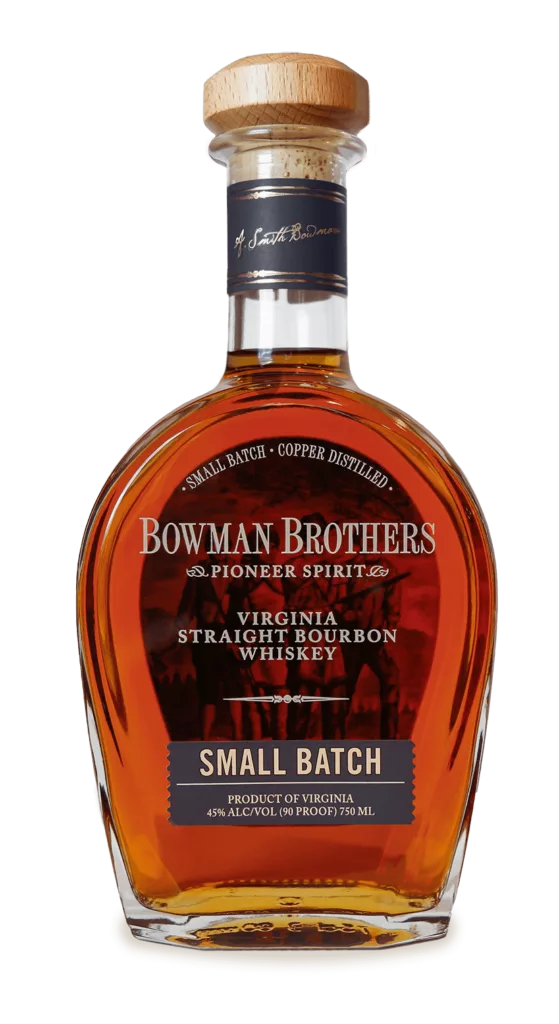
This article originally appeared in the February 2025 issue.
